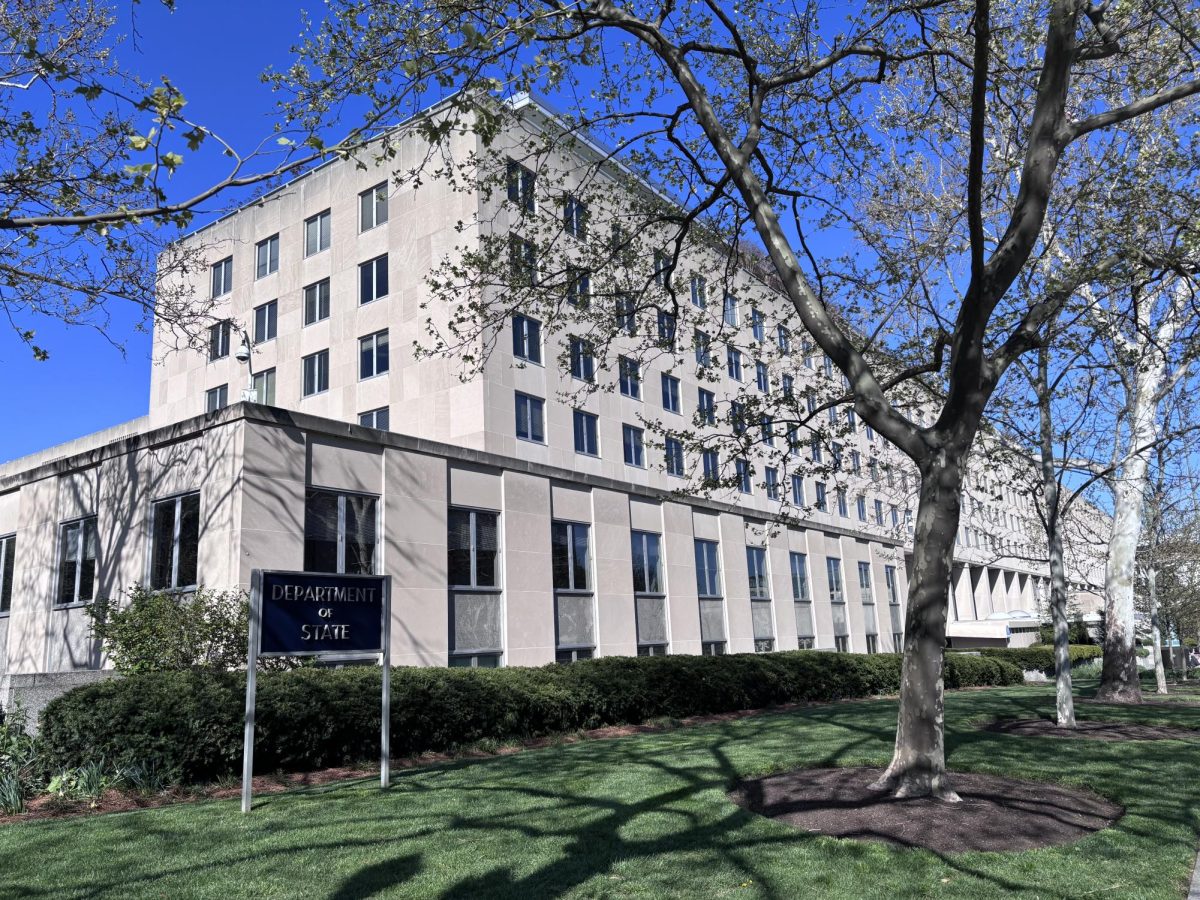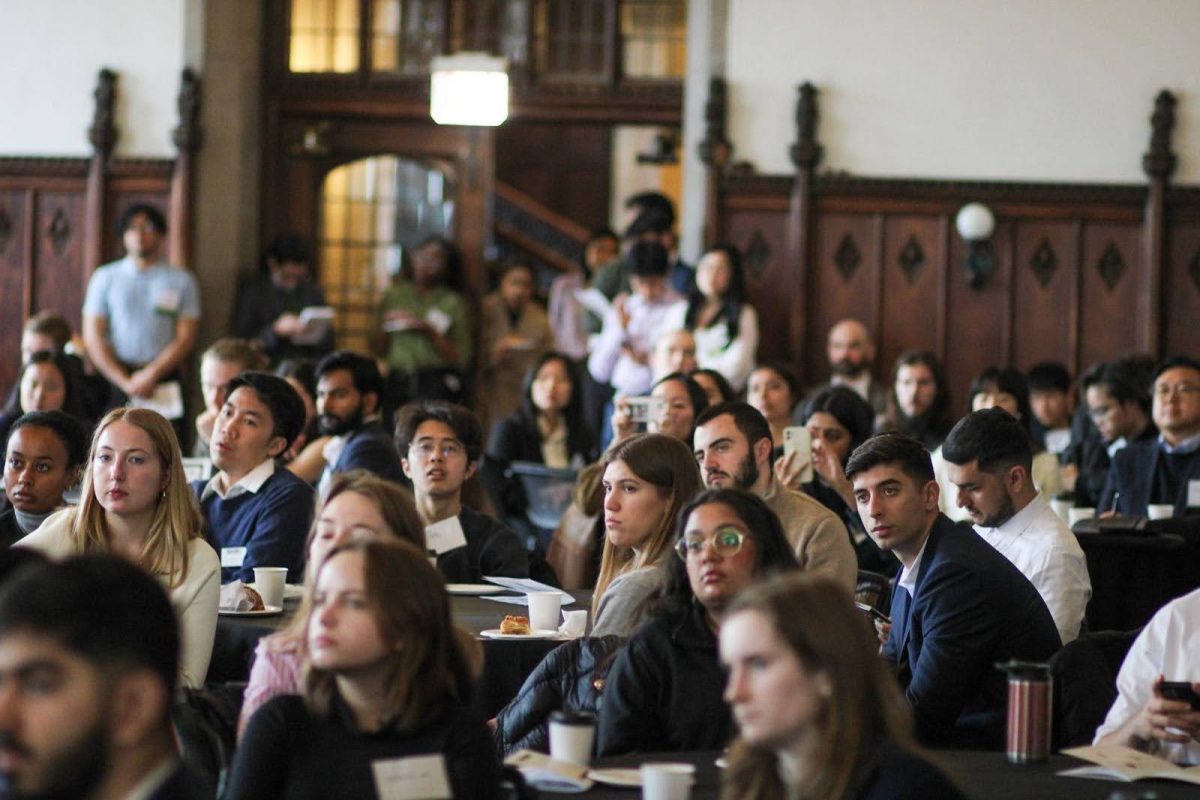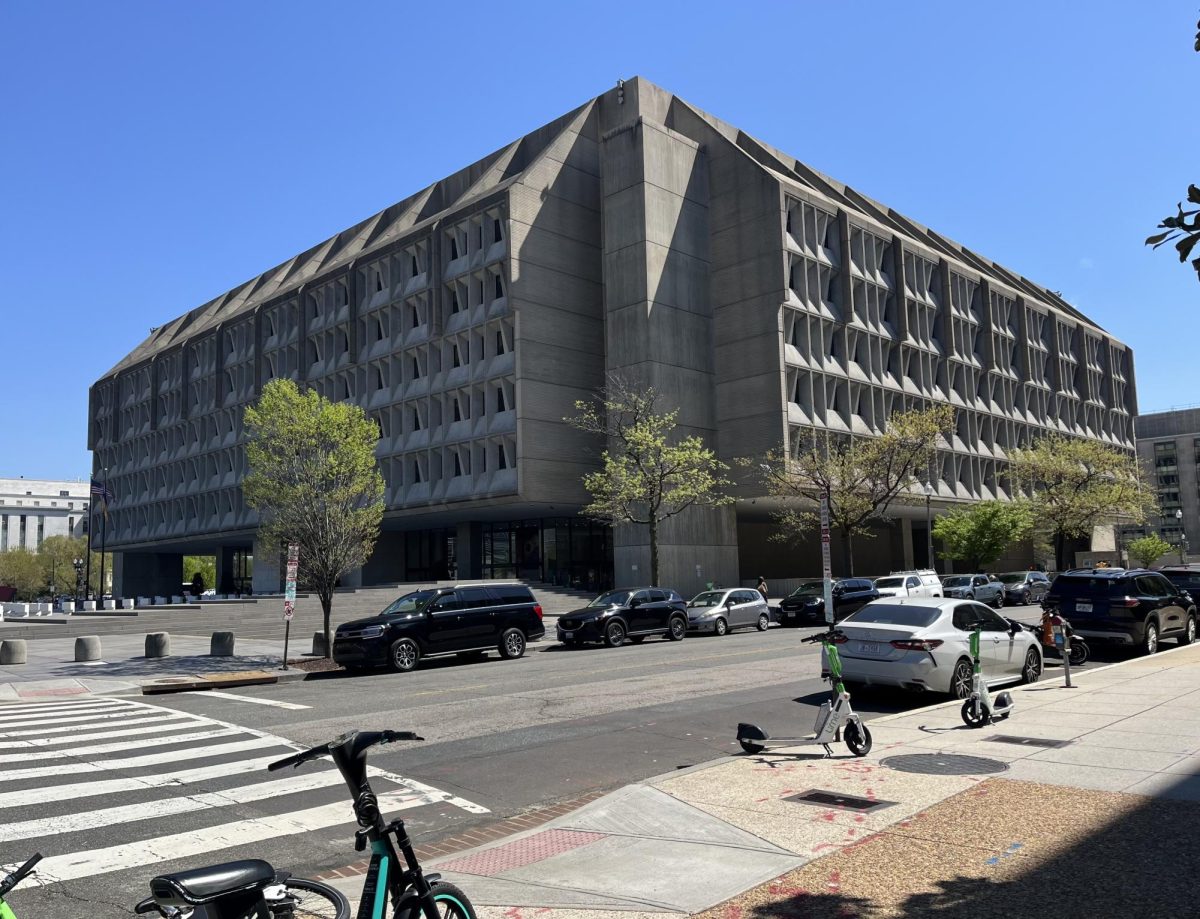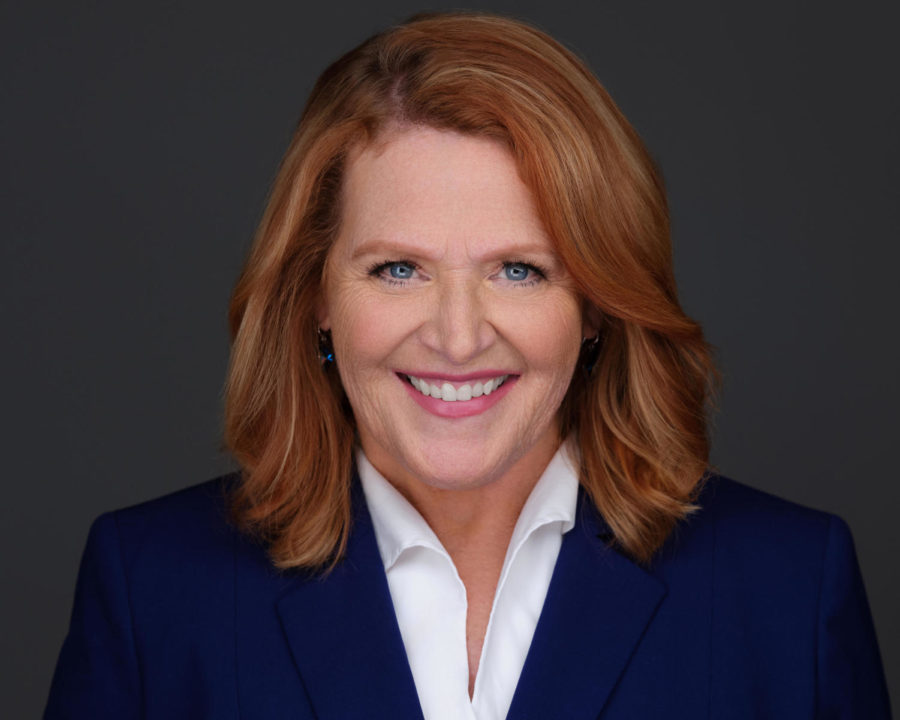Men in Power, a pending RSO on campus, held their first meeting Thursday night in Bartlett Trophy Lounge to discuss the male-focused pre-professional group’s plans to address gender and career issues, attracting about 25 attendees, including seven protesters.
Men in Power founder and third-year Steve Saltarelli, a Maroon associate sports editor, first proposed the group in a March Viewpoints column for the Maroon that was intended as a satire, Saltarelli said. However, after its publication, Saltarelli said he began receiving e-mails from “all over campus” about forming an actual group. Men in Power is pending final approval on their RSO application, although it was approved by the Committee on RSOs (CORSO), which voted three-to-two to recommend Men in Power for approval.
CORSO chair and third-year Race Wright said the committee had some reservations about recommending Men in Power, but CORSO thought that the group fulfilled the criteria necessary for approval.
“Initially, we questioned how serious the group was,” Wright said. “In deciding, we look for a clear philosophy for what the organization is about, and whether they had identified clear mechanisms to accomplish those goals.” The organization’s presentation to CORSO allayed some of their concerns, he said.
Currently, Men in Power is working on organizing a campus-wide event for the end of the year, but in the future they plan to host speakers on masculinity in America, hold alumni roundtables, and begin a mentoring program called “Little Men in Power” in the Chicago Public Schools.
In addition, Men in Power is broken up into three smaller pre-professional groups for students interested in business, medicine, and law.
When Saltarelli was asked by one of the seven protesters if he believed there were not enough men in power, Saltarelli said he did, and that his group was interested in cultivating leadership in men. He said that success was not a zero-sum game.
“This is not a backlash, not a relative gain thing,” he said. “It doesn’t mean we oppose women.”
Saltarelli said that the group would create settings inviting to males for interests not yet served on campus, like prostate cancer awareness.
“There are 11 women’s groups on campus and none for men,” Saltarelli said. Fraternities are not RSOs and are not funded by University resources.
Women in Business president and fourth-year Jessica Pan saw nothing wrong with a pre-professional organization for men and women on campus, but “to call it Men in Power denotes something different,” she said.
“Other pre-professional organizations on campus serve the same function that Men in Power seeks to,” she said. “Not only are there many business RSOs from the Blue Chips to [the International Leadership Council], but I’m sure there are also pre-professional health and law RSOs. To allocate money towards the group takes away from other organizations who are already fulfilling that function.”
Saltarelli said that while existing groups may offer career-oriented services, they do not address issues of men’s rights. “Men have far higher instances of suicide and drug use than women,” Saltarelli said in an interview.
Pan said she believes that Women in Business serves a needed, gender-specific role.
“Gender is an issue that is present in the business world,” she said. “Not only are some women not paid as much as men for the same job function, but there are many fewer women executives.”
Second-year Eliza Behlen said the Feminist Majority, of which she is a member, plans to discuss Men in Power at their Tuesday meeting. Behlen hopes to work with Men in Power planning events, such as a series documenting the construction of masculinity and femininity in the media.
“That’s why we have men who come to our meetings, because we discuss issues relevant to everyone,” she said.
Fourth-year Ali Feenstra, another member of Feminist Majority, said she is not convinced Men in Power teaches men to be empowered without hurting other people.
“You need to think about the reason for the creation of female-only spaces, queer-only spaces, an independent reason why people might need to go there to feel safe,” Feenstra said. “It can’t just be ‘Because it exists for women, it should exist for men.’”
At the meeting, third-year Elizabeth Scoggin, Men in Power’s outreach director, said she saw gender divisions in the workplace as a problem for both genders.
“There is a stigma around women being involved in a group that recognizes that men have a role to play,” she said.
First-year Omar Massoud said he came to the Men in Power meeting because a sign sparked his interest. He said that he felt criticisms voiced at the meeting were unwarranted.
“This RSO has yet to do anything and the group goals seem completely justified,” he said.
Wright, the CORSO chair, said Men in Power describes a core philosophy significantly different from other groups, conducting a real exploration of men’s issues not addressed by CAPS. He said CORSO members were somewhat concerned about the name, which could be taken as pejorative or offensive to other groups. They decided it did not fall under language intended solely towards victimizing others and therefore should be approved.
Ultimately, he said, the organization will “have to live with it—they might be better off with another name, but it’s not on us.”








